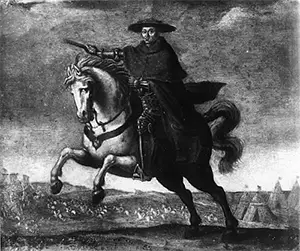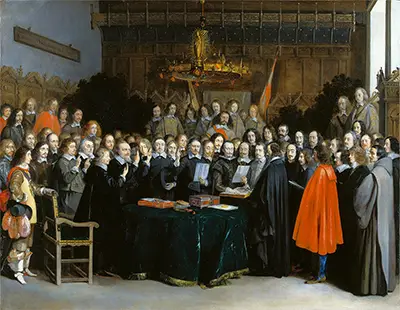Cardinal Mazarin: Chief Minister to Louis XIV
Part 1: To the Pinnacle of Power Cardinal Jules Mazarin was chief minister to Louis XIV, securing for the French king all the trappings of absolute monarchy. He engineered a number of French victories near the end of the Thirty Years War and also played a leading role in the negotiations of the Peace of Westphalia, which ended the war. 
He was born Giulio Raimondo Mazzarino on July 14, 1602, near the Italian settlement of Pascina. He grew up in a religious household and had a powerful benefactor in the Colonna family to finance his education, which he completed in Spain, studying law at what is now the University of Madrid but then was Alcalá de Henares. After a brief stint in the papal army, Mazarin had a religious conversion experience and joined the papal diplomatic service. Right away, Mazarin proved his mettle, securing a peace agreement that ended a brief war over the succession to the crown fo Mantua. Also part of the negotiations was France's chief minister, Cardinal de Richelieu. Mazarin decided that he wanted to be just like the famous cardinal. 
Richelieu might have been impressed with Mazarin's actions on the field of battle at Casale, on Oct. 26, 1630. Desperate to avoid more bloodshed, Mazarin got on his horse and rode up and down between the lines of the opposing armies, shouting, "Peace! Peace!" That desperate measure did not stop the fighting, but Mazarin eventually did negotiate the Treaty of Cherasco, in June 1631. Mazarin benefited from association with another powerful person, Cardinal Carberini, whose uncle was Pope Urban VIII. The cardinal introduced Mazarin to some famous artists and also, more importantly, used his influence to get Mazarin appointed to be a papal nuncio assigned to the French court. There, Mazarin worked directly with the famous Richelieu. France and Spain were fighting at the time, and Pope Urban VIII had approved sending Mazarin to the French court with a mission to help end that conflict; however, in 1635, Richelieu convinced King Louis XIII to enter the Thirty Years War not on the side of Spain–both countries were Catholic, and the war had been a struggle of Catholics against Protestants–but opposing Spain. Mazarin went back to Rome but continued to correspond with Richelieu as the war dragged on. Louis XIII bestowed royal privileges on him and asked him to return to Paris. He did so, in 1640, and was made a cardinal the following year. Also in that year, he secured an alliance between France and Savoy, after a long period of negotiation. 
Richelieu died in 1642, and Mazarin succeeded him as the king's chief minister. Louis XIII died in May 1643, and succeeding him was his 5-year-old son, Louis XIV. The new king's mother, Anne of Austria, served as regent and depended on Mazarin to run most of the government. Mazarin, who for several years wanted to end the war, got his chance, as peace negotiations began in Münster in 1644. Mazarin was the head of the French delegation for a considerable part of the four years of negotiations that eventually resulted in the Peace of Westphalia, which ended the Thirty Years War. Next page > Surviving and Thriving > Page 1, 2 |
|
Social Studies for Kids
copyright 2002–2024
David White




